Are you looking to craft the perfect letter of recommendation for a sports team coach? Whether you're a player, parent, or colleague, highlighting a coach's dedication, expertise, and impact on the team can make a lasting impression. A well-structured reference not only showcases their strengths but also shares specific examples of their coaching style and success. Dive in to discover our tailored letter template that will help you convey all the essential qualities of an outstanding coach!

Personal attributes and leadership skills
An effective sports team coach embodies several personal attributes that enhance their leadership skills, facilitating team dynamics and promoting a positive environment. Key characteristics include strong communication abilities, fostering clarity and motivation among athletes during practices and competitions. Empathy plays a critical role, allowing coaches to understand and address individual player needs, enhancing overall team morale. Additionally, decision-making skills are necessary for devising strategies during critical game situations, ensuring swift and effective resolutions to challenges. A coach's integrity and commitment to fair play inspire trust and respect among team members, contributing to a cohesive unit focused on common goals. Attributes like resilience and adaptability allow coaches to navigate the unpredictable nature of sports, leading their teams through triumphs and setbacks alike, ultimately shaping well-rounded athletes both on and off the field.
Coaching philosophy and strategies
A successful coaching philosophy encompasses various strategies that prioritize athlete development and team cohesion. Emphasizing a growth mindset, the coach fosters an environment where athletes learn from both victories and losses, encouraging resilience and adaptability. Incorporating techniques such as positive reinforcement and individualized feedback, the coach ensures that each athlete, regardless of skill level, feels valued and motivated. Utilizing structured practice sessions that balance skill development, teamwork exercises, and competitive scenarios builds both camaraderie and on-field performance. Consistent communication with athletes promotes transparency and trust, essential for a thriving sports culture. Implementing data analysis tools to assess player performance offers insights for adjustments that can enhance overall team strategy. Engaging with parents and the broader community also strengthens the support system surrounding the athletes, contributing to a well-rounded approach in achieving success both on and off the field.
Achievements and success stories
The success of the Golden Eagles (youth soccer team based in Springfield) during the 2023 season highlights the exceptional coaching abilities of Coach Thompson. Under his guidance, the team achieved an impressive record of 15 wins, 2 losses, and 3 draws in the local league. Significant victories included a 4-1 triumph against the rival Panthers, showcasing the team's development in strategic play. Additionally, the Golden Eagles secured the Championship title in the Springfield Cup, defeating the Maple Leaves 3-0 in the final match held at Riverside Stadium. Coach Thompson's emphasis on teamwork and skill development fostered a positive environment for players, resulting in numerous individual accolades, including Most Valuable Player awarded to Jake Morris and Best Defender recognition for Sarah Lee. Beyond the field, the team participated in community service events, such as food drives and local charity runs, demonstrating the program's commitment to developing well-rounded athletes.
Relationship with players and staff
The relationship between a sports team coach and players is pivotal for fostering a positive team environment. Trust is essential; players thrive when they feel supported and understood by their coach. Effective communication enhances this bond, ensuring that both players and coaching staff are aligned on strategies and goals. For instance, regular team meetings and one-on-one sessions can facilitate an open dialogue, where feedback can be exchanged. Additionally, the coach's ability to motivate and inspire players impacts their performance during crucial events, such as championships or tournaments. The collaborative spirit among the coaching staff further enriches the team's dynamics, promoting teamwork and shared vision, which are essential for achieving success on and off the field.
Communication and motivational abilities
A successful sports team coach exemplifies exceptional communication skills and motivational abilities crucial for fostering teamwork and enhancing player performance. Effective communication enables a coach to clearly articulate strategies, goals, and feedback to athletes, ensuring all team members understand their roles during practices and games. Additionally, motivational abilities allow the coach to inspire players, instilling confidence and fostering a positive competitive spirit. For instance, a coach's ability to recognize individual player achievements, regardless of skill level, can significantly boost morale and encourage continuous improvement. Creating an environment where athletes feel valued and supported not only strengthens team cohesion but also improves overall performance during critical events like regional championships. Ultimately, strong communication and motivation skills are essential for any coach aiming to cultivate a successful and unified sports team.

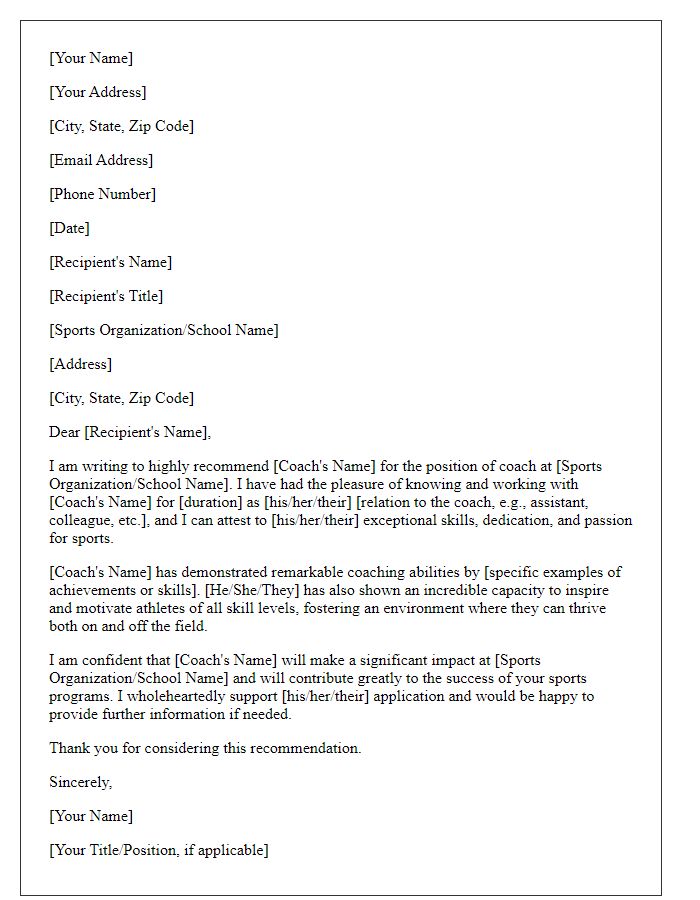
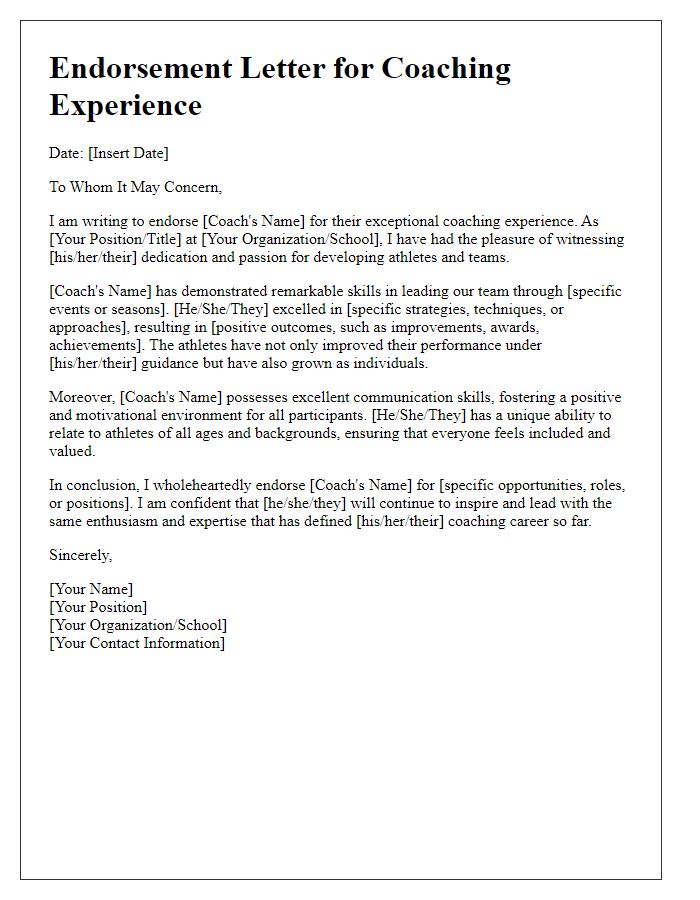
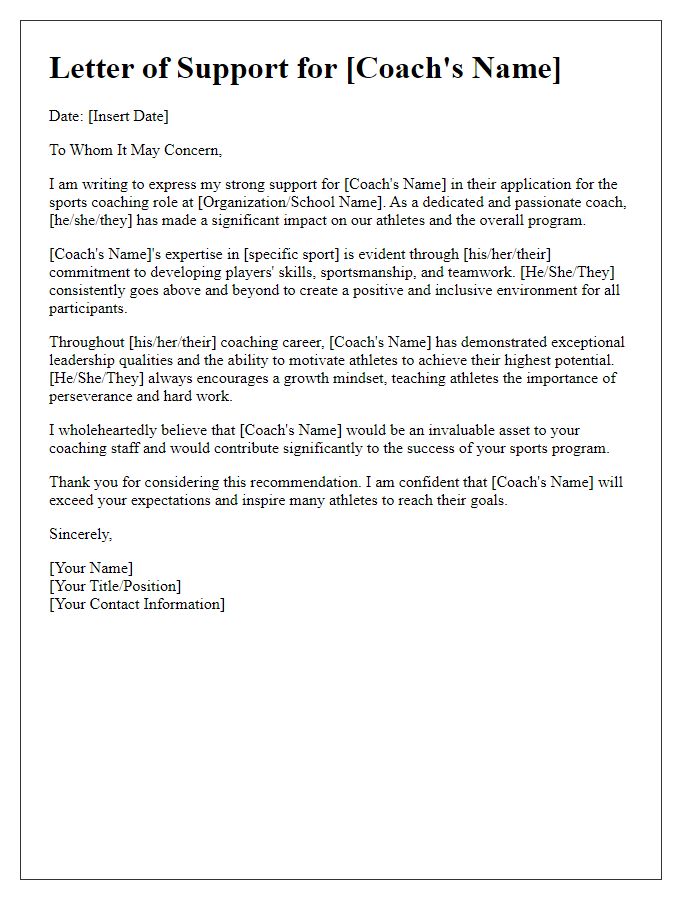
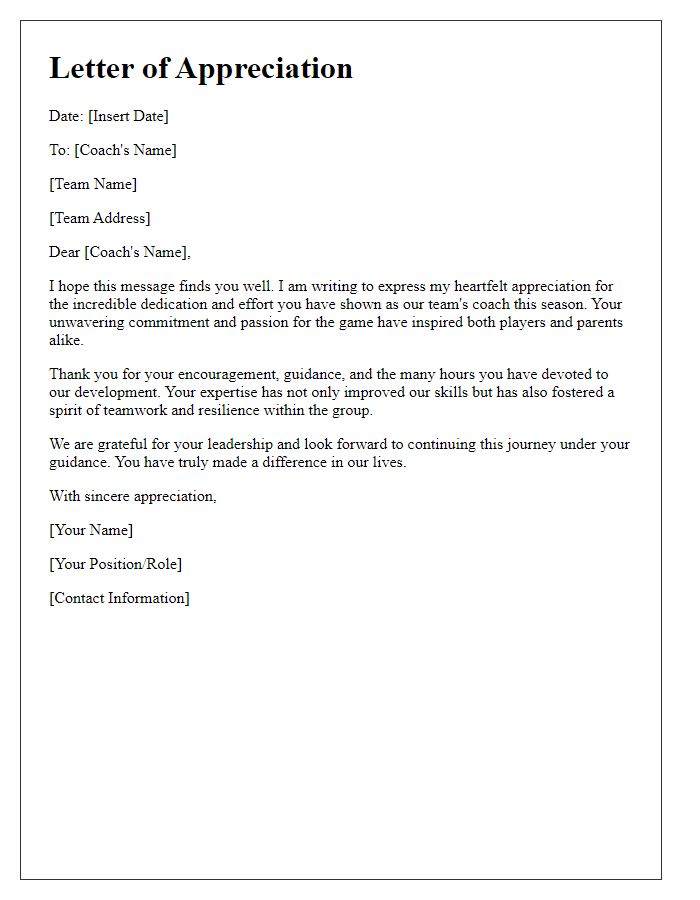
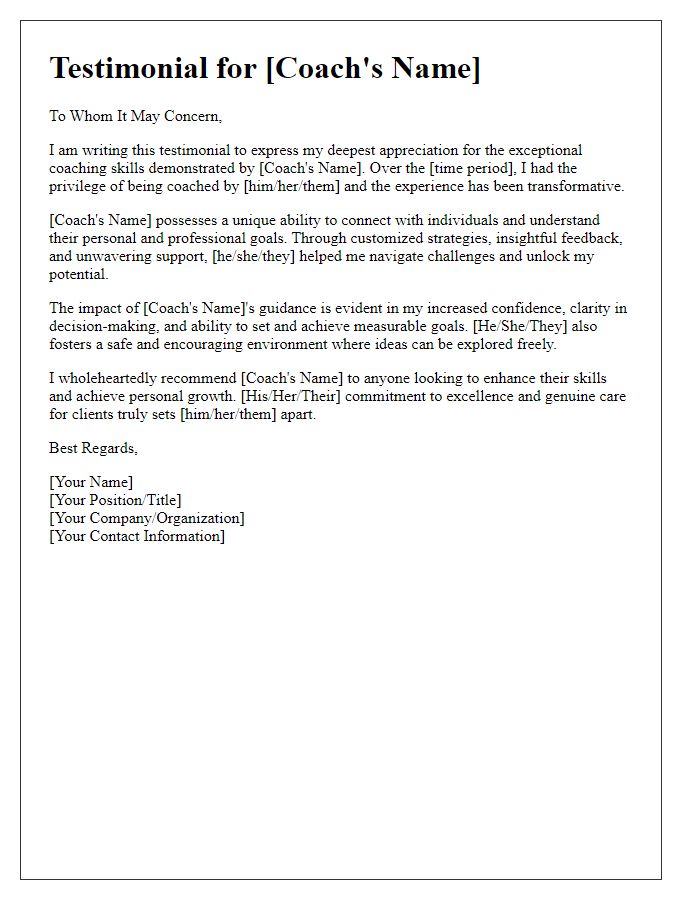
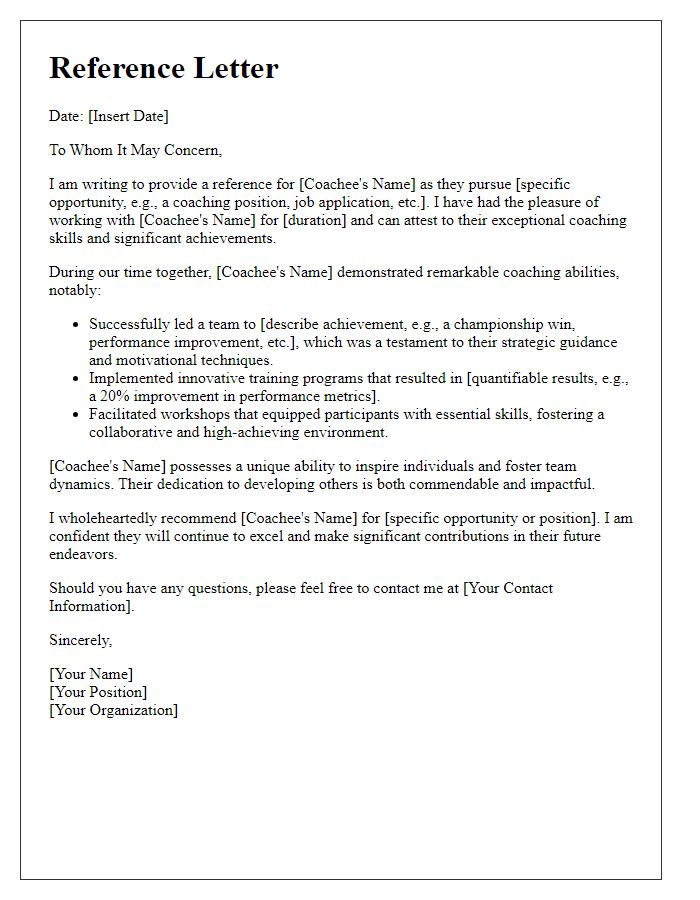
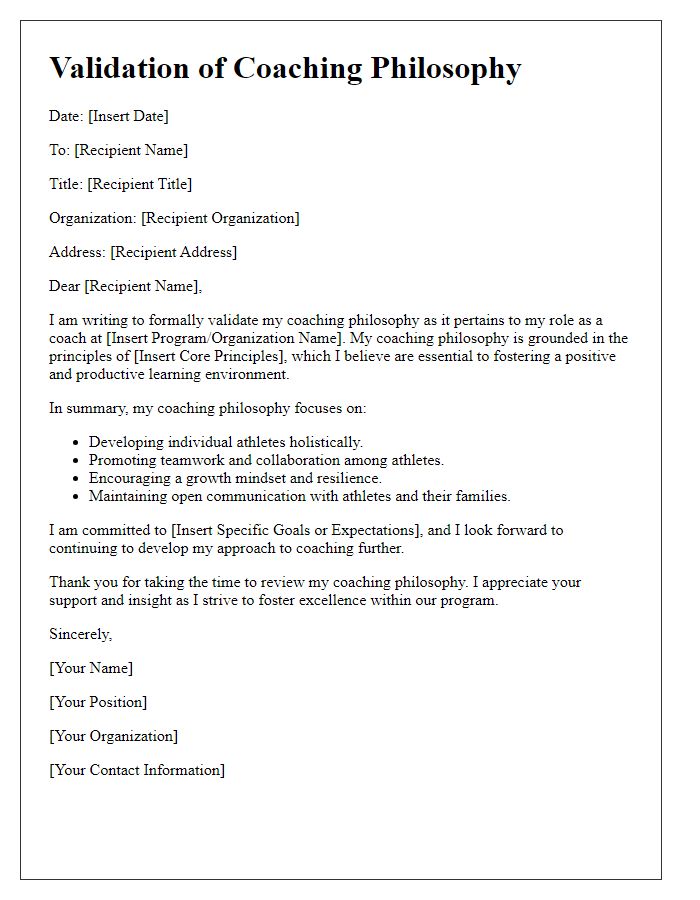
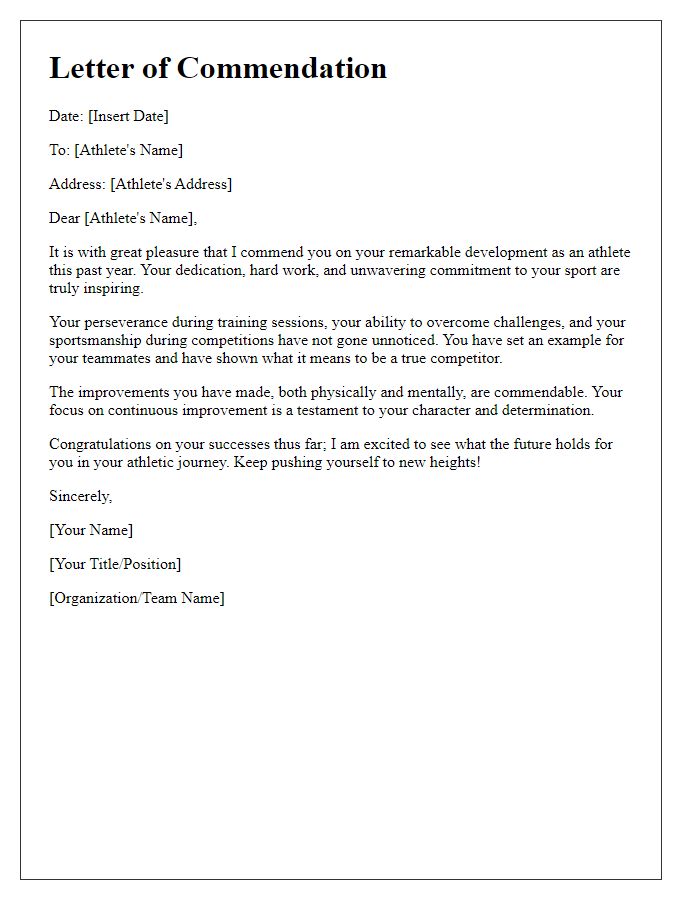
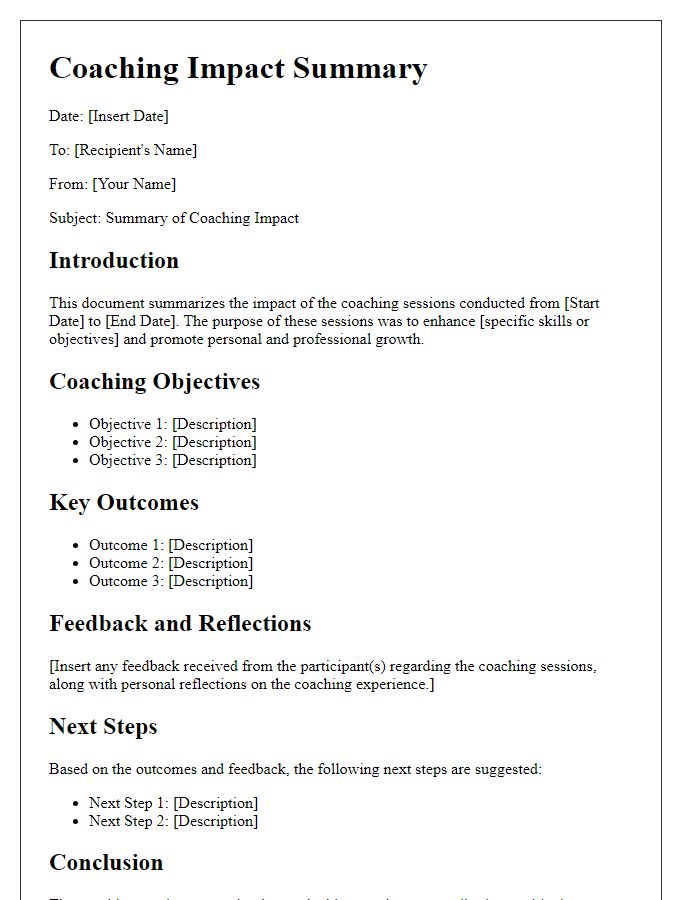
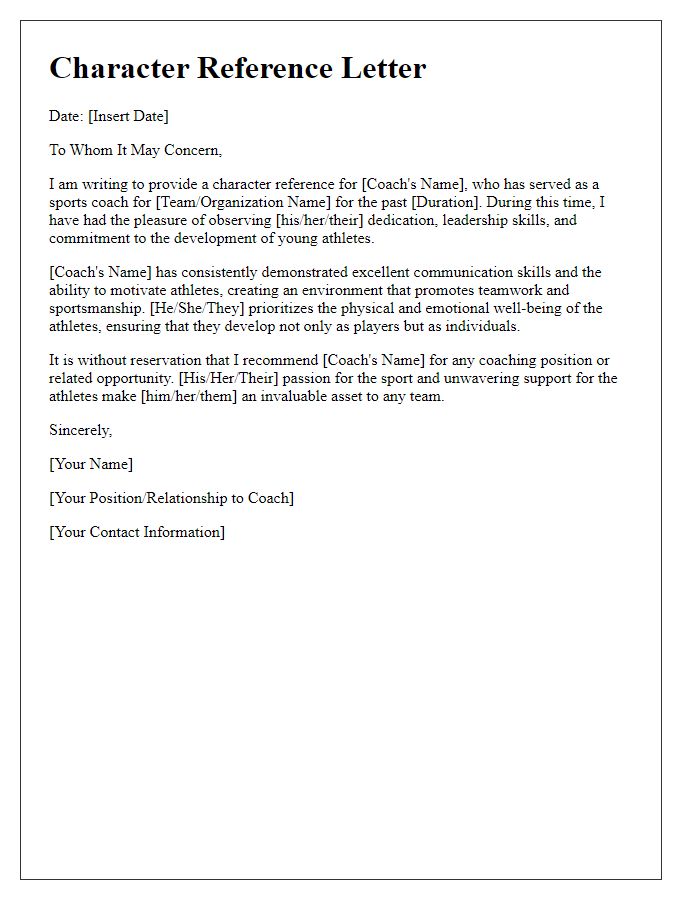


Comments